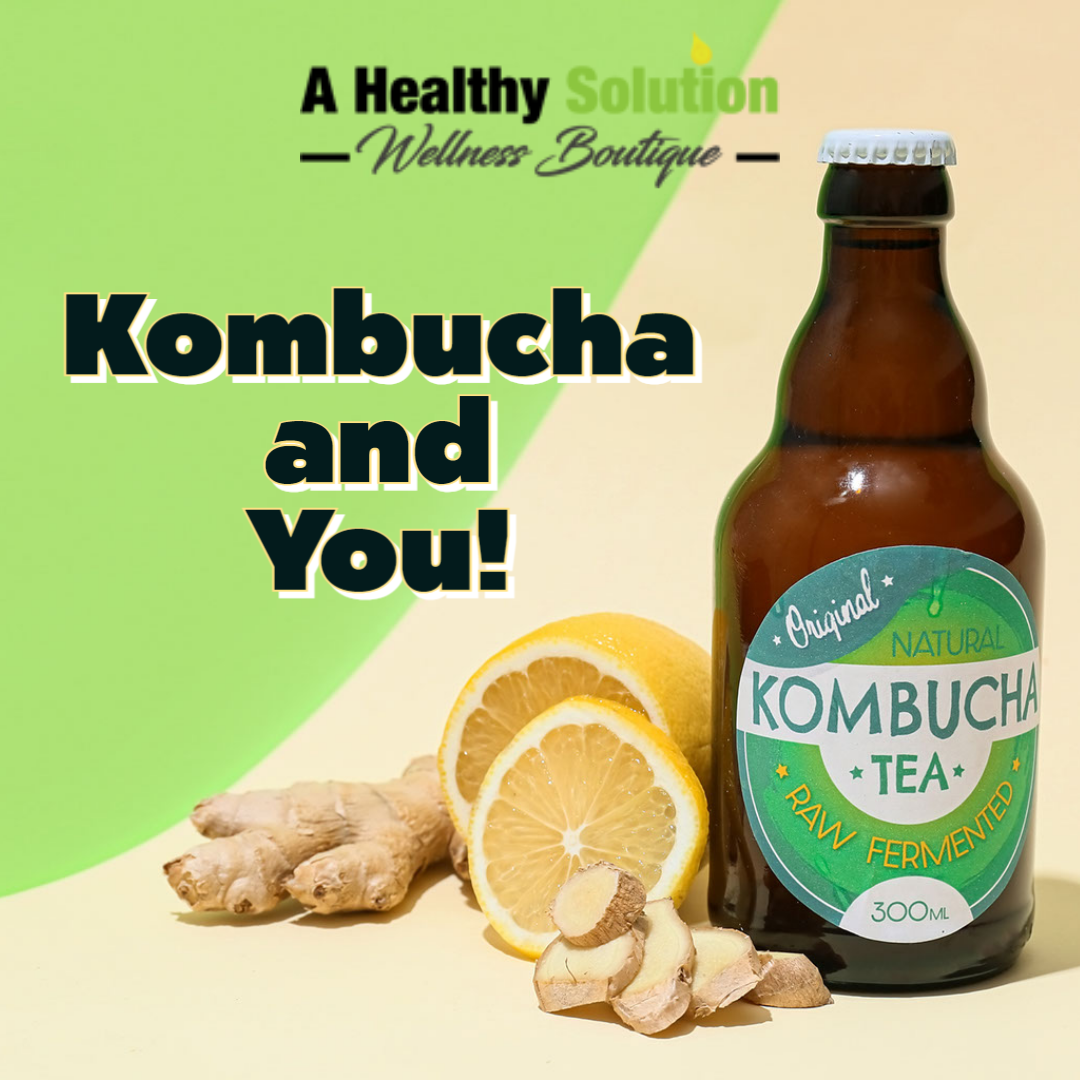Our health is always a big deal, and maintaining it is even more important. Maintaining our health can help improve our everyday activities and make us feel great. Which is why it is important to put the right nutrients into your body. But we also want those healthy things to be tasty, right? It can be hard to find that proper balance between the two, but it can be found! Like with the beverage kombucha. This beverage is enjoyed by many and can also give you a lot of health benefits. In this article, we will be discussing what kombucha is and how it is able to benefit you and your health.
What is Kombucha?
By definition: “Kombucha is a fermented, lightly effervescent, sweetened black tea drink commonly consumed for its purported health benefits. Sometimes the beverage is called kombucha tea to distinguish it from the culture of bacteria and yeast. Juice, spices, fruit or other flavorings are often added.” Kombucha is believed to originate in China or Japan. It’s created by combining specific strains of bacteria, yeast and sugar to black or green tea, then letting it to ferment for a week or more. Throughout this process, bacteria and yeast create a mushroom-like film on the surface of the liquid. Therefore, kombucha is also known as “mushroom tea.” This mass is a living symbiotic colony of bacteria and yeast, or a SCOBY, and can be used to ferment new kombucha. The fermentation procedure makes acetic acid (also found in vinegar) and numerous other acidic compounds, hints of alcohol and gases that make it carbonated. The name comes from the Japanese term konbu-cha/kobu-cha, which means “kelp tea.” This refers to the drink originally being made with powdered konbu (an edible type of kelp) and is different from the modern fermented tea we have in our modern time.
How can Kombucha Benefit you?
There are a few ways this everyday beverage can help you stay healthier! Let’s go into the overall benefits of this drink and what makes it so special. There are some types of kombucha out there that contain the types of green tea containing epigallocatechin-3-gallate (EGCG), which can help improve your metabolism. Kombucha made from green tea may support many of the same health benefits as green tea itself, such as weight loss and blood sugar control. This can be a game changer if you’re looking into losing weight, though it isn’t a “magic weight loss product”, it can still promote a healthier. And if you need help with keeping your blood sugar in at a manageable level. On top of that, according to recent research, kombucha is also capable of assisting with gut troubles due to its ability to balance good bacteria in the stomach. This is very beneficial to help relieve gastrointestinal issues you may be experiencing as well due to said balance in good bacteria. Speaking of bacteria, this product being high in tea polyphenols and acetic acid, both being shown to suppress the growth of undesirable bacteria and yeast in the body. Kombucha has been shown to be rich in antioxidants, there have been studies done to shown that it protects rats’ liver from toxicity. Kombucha is also able to help with reducing inflammation in the body. Chronic inflammation can be linked to most, if not all, health conditions. Including heart disease, diabetes, arthritis, respiratory illness, and more. While it doesn’t work like medicine, it can aid you in a promoting a healthier lifestyle that can reduce overall inflammation in your body. Due to these benefits, kombucha is also able to help boost your immune system! Most, if not all, kombucha drinks contain many different bacteria, yeast, and other nutrients that help your body.
Conclusion
These are just the basics of what this drink can do for your body. There are many people that use Kombucha to help treat their chronic conditions/health problems, while it has been proven to be very useful in helping you maintain a healthier lifestyle, there still needs to be more research done to prove how much it helps with said conditions. Regardless of the limits, it could still be worth trying to help you
with your day-to-day health care.





Leave A Comment
You must be logged in to post a comment.